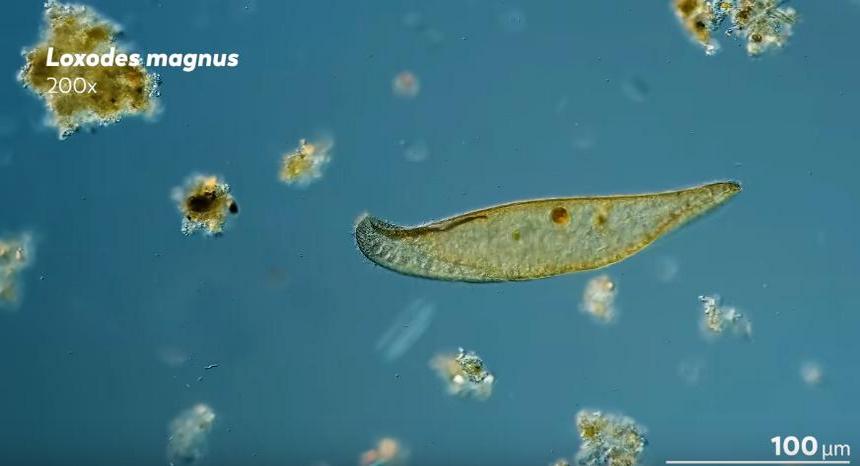
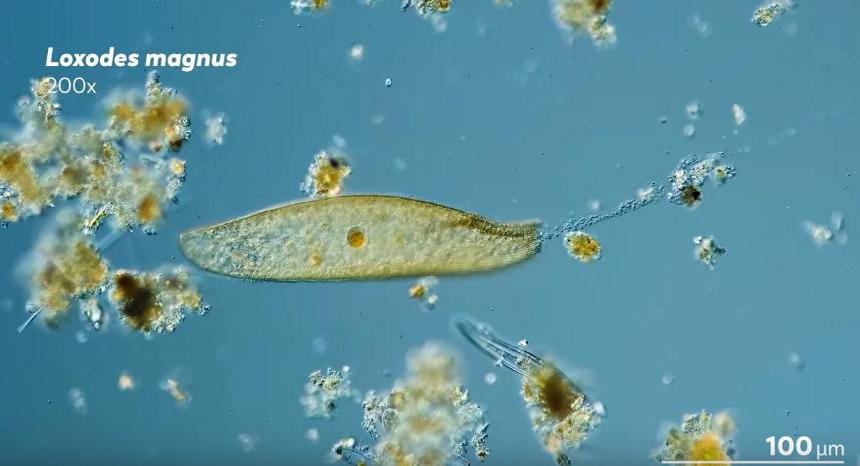
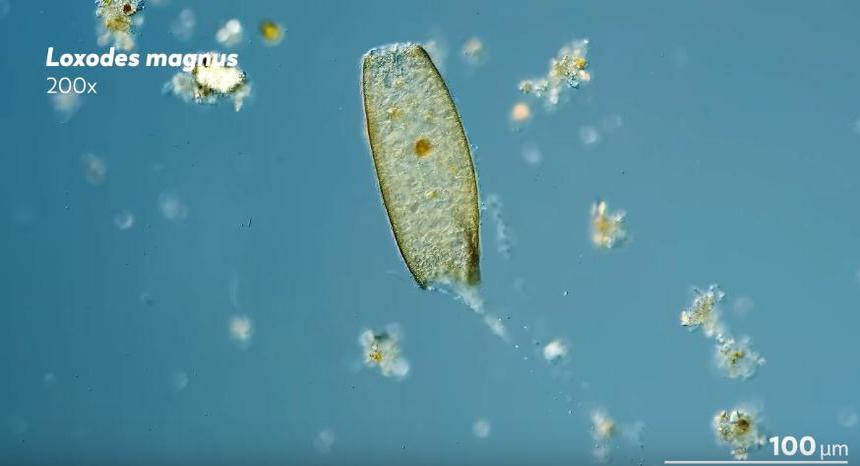
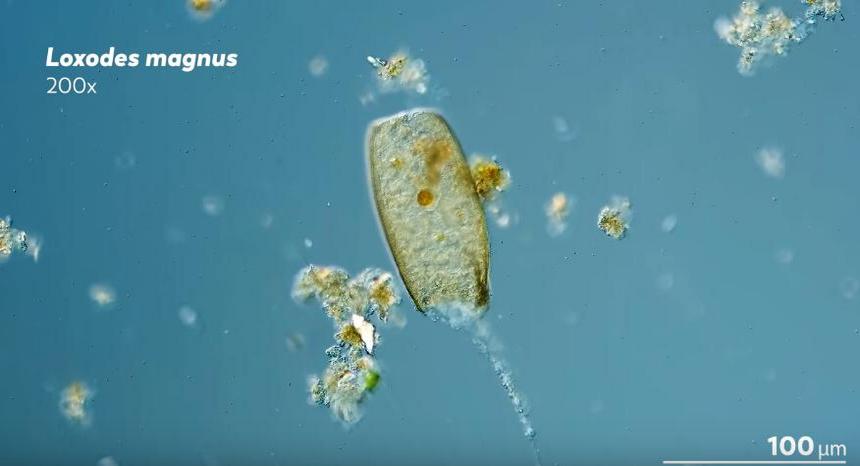
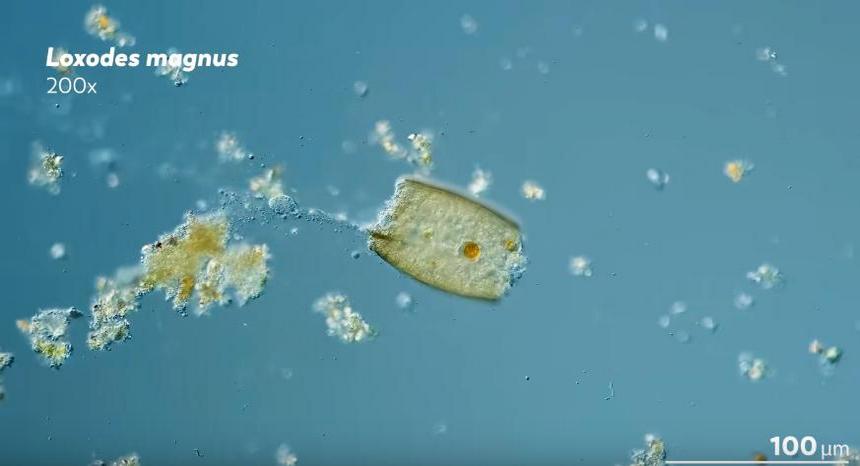
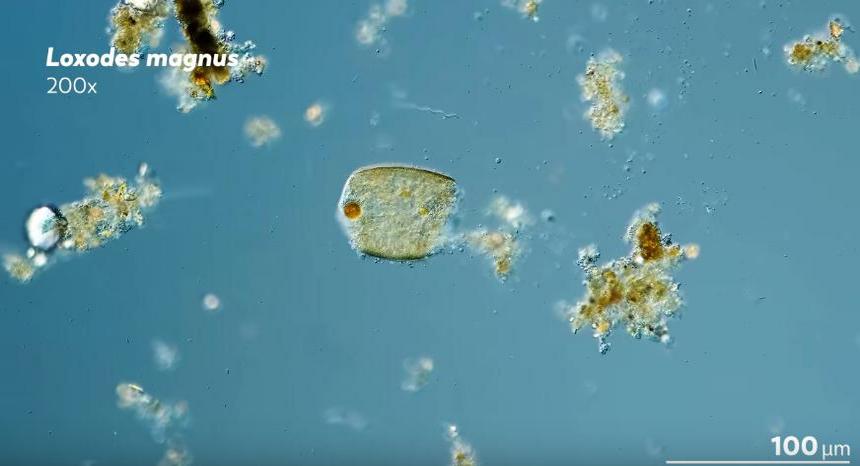
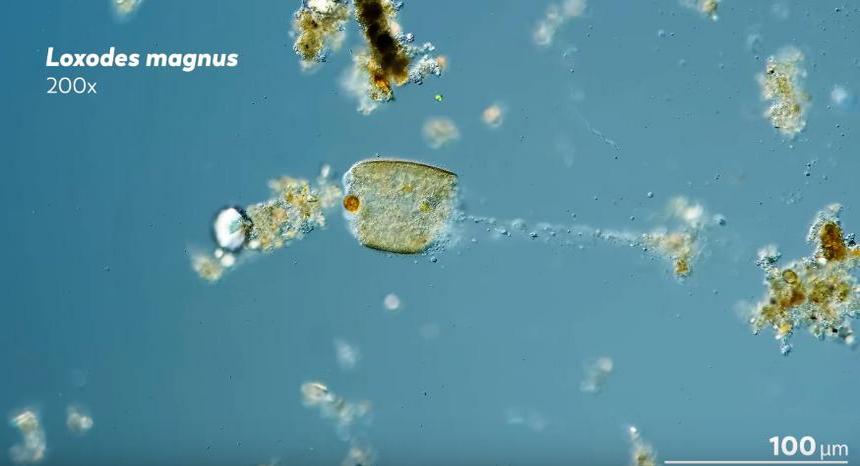
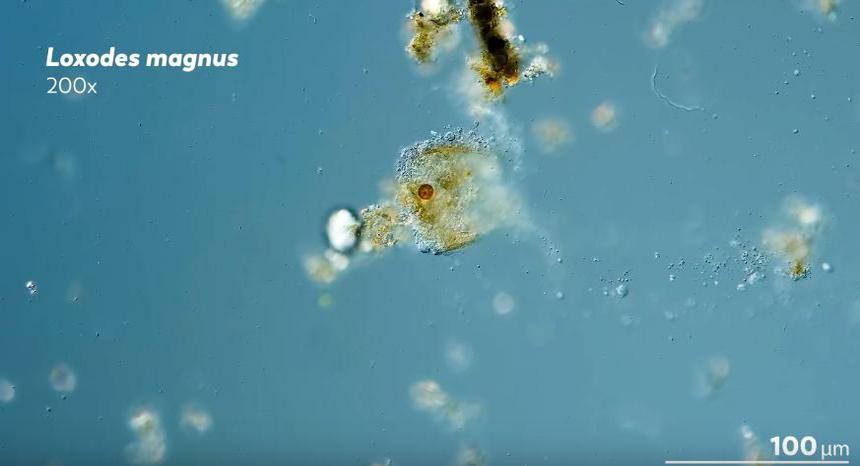
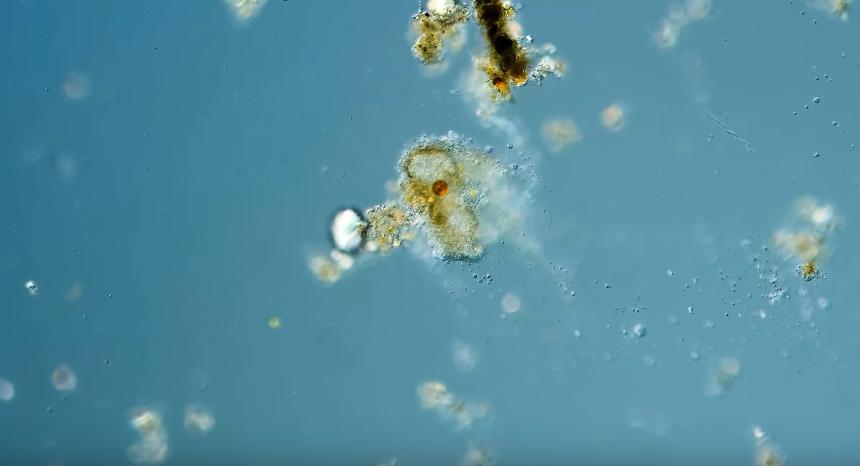
I watch a little1 unicellular ciliate called Loxodes magnus swim through its aquatic world.[1] I watch the moment its plasma membrane ruptures at one end, causing the creature's cytoplasm to begin to ooze out, leaving a trail of organelles. Seemingly unaware, the Loxodes continues to swim, propelled by its cilia—microscopic paddles protruding from its membrane.
Unable to repair its membrane, the rupturing worsens, and the cytosplasmic trail becomes a spill. Now both ends of its single-celled body rupture. Organelles and bits of membrane are being shed rapidly, as if tugged and ripped by some rapacious reaper.
And still the Loxodes swims. Does it swim to escape this insiduous unseen predator that would see fit to dissociate the Loxodes's body in such undignified way? Or does it swim because it must swim?
This Loxodes is about to die. It comes to rest alongside some white blob, as if summoned there. What remains of its body now dissociates. And the ensemble of organelles which constituted the Loxodes a mere few minutes ago is now no more. The state of chemical non-equilibrium which was its life has now given way to equilibrium. It has become its environment.
That, right there, was a moment of death. I watched the Loxodes die. And in that moment, my own vacuoles of sadness that sit behind my eyes also rupture. I cannot offer the little creature any antidote to its death. I cannot offer it any elixir of an afterlife. There will be no ceremony, no moment of silence, no eulogy save for here.
Death—that moment when a life ceases, when a system that harnesses energy to keep itself in a state of chemical non-equilibrium ceases. That instant when the organic machinery, forged by Time since Deep Time to enable a life for a time to be, succumbs.
I watched a Loxodes die.
Download PDF i-watch-a-loxodes-die.pdf (414 KB)